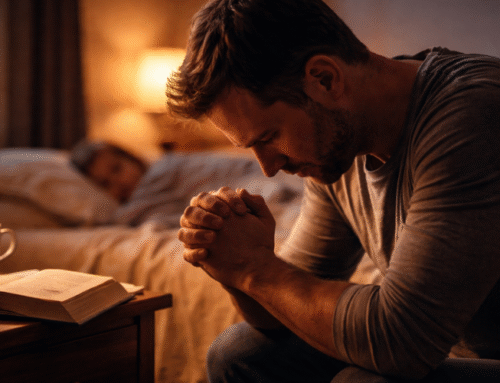No one is fatherless. I hate that term. The absent father is one thing. Dad may not be in the family picture, but make no mistake, these shooters have fathers. Then, there’s the disengaged dad. As we watch yet another wave of active shooter attacks, most recently in El Paso and Dayton, Oprah was asked what she thought. Let’s look at what she had to say. And allow me to add some thoughts.
Can’t view the video clip? Click here.
We’re missing something.
I agree with Fox & Friends and Oprah here. We’re missing something. The shootings are happening more and more. I remember the Columbine High School shooting happening when I was a senior in High School. Twenty years ago, I still remember some of the names of the students affected. Mostly because it was unheard of at that time. Years later now, it’s commonplace for my kids to hear about these shootings. How and why do these types of shootings continue to happen?
What Oprah said.
When Oprah was asked recently asked about the shootings, she said,
“I think what people are missing is a core moral center. Churches used to do that. It was a central place you could come to. And there was a core center of values. About a way of living and a way of being in the world. So, until we can return to that—however that is in whatever form—we will continue to be lost.”
Oprah continued,
“That’s why I believe storytelling is a form of a new religion. It’s a place where people can gather and be inspired and see themselves get filled.”
Okay, let’s unpack what Oprah said because there’s some truth to be gleaned. And, there’s some telling bits about culture and our drift as a society. Allow me to pull out a few phrases from Oprah and add my own commentary for a moment.
Oprah: “people missing a core moral center”.
I agree. We are missing our core moral center. As long as we live, every generation will have its THINGS that seem worse than the previous generations. But let’s agree that, generally, folks are missing a core moral center. I’d clarify: our problem is our lack of relationship with God. One click deeper, our problem is us fathers and our lack of relationship to God, the Father. Moving on…
Oprah: “Churches used to do that”.
Okay, sure. But hang on a second. Yes, we’ve seen many churches abandoned lots of things that make them a church. Dare I say that many churches have even lost their “core moral center”. But, I can’t move forward before pointing out that many churches still have a core moral center. Let’s keeping going.
Oprah: “Church was a central place to come”.
I agree again. Oprah and I, we’re going places here. The church used to be central in society—to family life. News flash: it’s not any longer. Yes, you can find a church in your area with a “core moral center” but in most cases, it’s not central to the family. But this speaks to the family—and dad—as I’ll point out later—more than it does the church. Let’s keeping going…
Oprah: “we’ll continue to be lost”.
Yep. True. Agree. Mark another point down for Oprah. Until we return to the church “with the core moral center” and hold that church as being central to our lives, we’ll “continue to be lost”. Amen. We need God or we’re lost.
Oprah: “storytelling is a form of a new religion”.
Wait, huh?! I have no idea what Oprah means here. I will say this, storytelling, as in, the Gospel is not a new religion. Let’s tell that story more. Let’s gather around that story and be inspired and get filled.
So, what’s the real problem? The disengaged dad.
Professor Jillian Peterson and sociologist James Densley offer an interesting look at America’s mass-shooters in the LA Times. They’ve studied every shooter since 1966, and the majority have four things in common:
- early childhood trauma and exposure to violence at a young age
- nearly all are longtime loners with an identifiable “crisis point” (think getting fired or expelled from school)
- seeking “validation” in extreme communities and especially online
- they are men.
I’ve seen where most if not all of the shooters were from fatherless homes. For fatherless children, we know the stats. In my work with National Fatherhood Initiative and Prison Fellowship, I know when dad’s absent, a child is:
- 2X more likely to be in prison if dad’s in prison
- 4X more likely to be in poverty
- 9X more likely to become a high school dropout
While it’s unclear if all of the shooters had absent fathers, our biggest problem isn’t simply absent fathers. It’s too easy to point fingers and blame the folks who aren’t in the room.
The root problem isn’t guns, violent games, racism, social media, troubled young men, the church, addiction, busyness, depression or lack of alone time…these issues are symptoms of the problem.
If you watch the above video closely, toward the end, the Fox News reporter says, “People without purpose can be very dangerous.”
I’d add to this, “People without the right purpose can be very dangerous.” Most if not all of these shooters had disengaged dads—but they had a purpose—their own evil purpose.
Our biggest problem is the disengaged dad.
Let me say that again: Our biggest problem is the disengaged dad. The dad who’s in the home but doesn’t have the right purpose. He has no bigger intention for his family. It’s you and me, the church-goin’ dad who’s in the home but not actively engaged and making disciples. Dads who live our lives pointing to everything else in this world, including ourselves, instead of pointing to God.
When we ask dads what their biggest challenges are, and we ask all the time. The few top challenges always rise to the top from dads:
- overwhelmed with time pressures
- communication issues
- not sure how to get started
How can we fix what’s missing? Reach the disengaged dad.
When I see this list of challenges from dads, I’m reminded of C. S. Lewis in The Screwtape Letters, where Uncle Screwtape counseled Nephew Wormwood, as Lewis writes:
“Once you have made the World an end, and faith a means, you have almost won your man, and it makes very little difference what kind of worldly end he is pursuing. Provided that meetings, pamphlets, policies, movements, causes, and crusades, matter more to him than prayers and sacraments and charity, he is ours—and the more ‘religious’ (on those terms) the more securely ours. I could show you a pretty cageful down here.”
As I type this, my three-year-old son is sleeping next to me and the news plays on TV in the background. My natural fears go-to questions like, “What kind of world is this—that I’m bringing him up in?” He’s gonna have it a lot worse than me. How will he navigate it all?
Then, by God’s grace, I realize, my dad probably has similar fears for me. The only rest we have is to lean on God. That I give my son the proper example over thousands of days in this life. How I treat him, his sisters, his mom. How I interact with our church-attending and serving on a mission and with purpose. God help us, we’ll have biblical conversations all the time.
Deuteronomy 6:4-9 says:
“Listen, Israel: The Lord our God, the Lord is One. 5 Love the Lord your God with all your heart, with all your soul, and with all your strength. 6 These words that I am giving you today are to be in your heart. 7 Repeat them to your children. Talk about them when you sit in your house and when you walk along the road, when you lie down and when you get up. 8 Bind them as a sign on your hand and let them be a symbol on your forehead. 9 Write them on the doorposts of your house and on your gates.
This is the same few verses I heard from a church that was the center of our lives, where my parents took me thousands of days during my childhood. I encourage you today, lean on God’s grace—because it’s sufficient. Cling to Him. Love Him so much that He changes your heart, your actions, your words, your thoughts. He changes how you treat your wife and how you relate to your kids.
God, help us to live in such a way that we look back and say credibly and humbly, like Paul in 1 Corinthians 11:1, “Imitate me, as I also imitate Christ.”
Why is this so important? Because the world is at stake. If Satan wins the dad, he wins the family. If he wins the family—he wins.
C. S. Lewis knew this.
The Apostle Paul knew it.
God knows it.
Satan knows it.
Do we know it?












